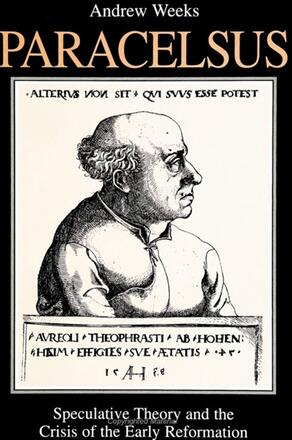
Paracelsus
Speculative Theory and the Crisis of the Early Reformation
Alternative formats available from:
Paracelsus is commonly regarded as one of the great figures of sixteenth-century Europe and of German intellectual history. This book examines the content of his writings in order to clarify it and its historical context.
Description
Paracelsus is regarded as one of the great medical innovators of all time, as a prototype of Goethe's Faust and as a founder of German Renaissance nature philosophy. Recently, his role in the popular "radical Reformation" that coincided with but went beyond Luther's church reform has been recognized as well. A legendary wanderer and rebel, he is an author of undisputed importance, but also one clouded by puzzling ambiguities.
Based on a close examination and revised dating of Paracelsus's writings, this book rejects certain myths concerning the author's scientific orientation and experience of nature. The genesis of his thought is traced to his responses to sectarian conflicts of the early Reformation. One can characterize Paracelsus's project as that of a radical theorist who transgressed the boundaries of disciplines and seized upon the irreducible particularities of his phenomena--the transmuted disease or the unrecognized female pathology--to challenge the established order and ideology.
Andrew Weeks teaches German at Illinois State University. His books published by SUNY Press include Boehme: An Intellectual Biography of the Seventeenth-Century Philosopher and Mystic and German Mysticism from Hildegard of Bingen to Ludwig Wittgenstein: A Literary and Intellectual History.
Reviews
"This book treats as a unity the two sides of Paracelsus's thought--its speculative and theological aspects and its medical and scientific side, generally dealt with as separate and unrelated--and thus provides a convincing interpretation of his concerns that is plausibly developmental and fully historical. Thus, Paracelsus is made to cast further light on his times, and the times are made to illuminate him. This is an extremely solid and well-written work based on fully adequate scholarship and an impressively broad--and deep--understanding of the period. " -- William J. Bouwsma, University of California, Berkeley
"This is a successful analysis of the life and writings of a seminal thinker of the sixteenth century, whose theories have had major influence on Western thought since his time. The author proceeds by discussing the salient features of difficult texts within the historical context. Weeks describes his task as a 'text-centered historicism. ' I know of nothing recent in English that would rival this work. " -- D. F. Durnbaugh, Juniata College